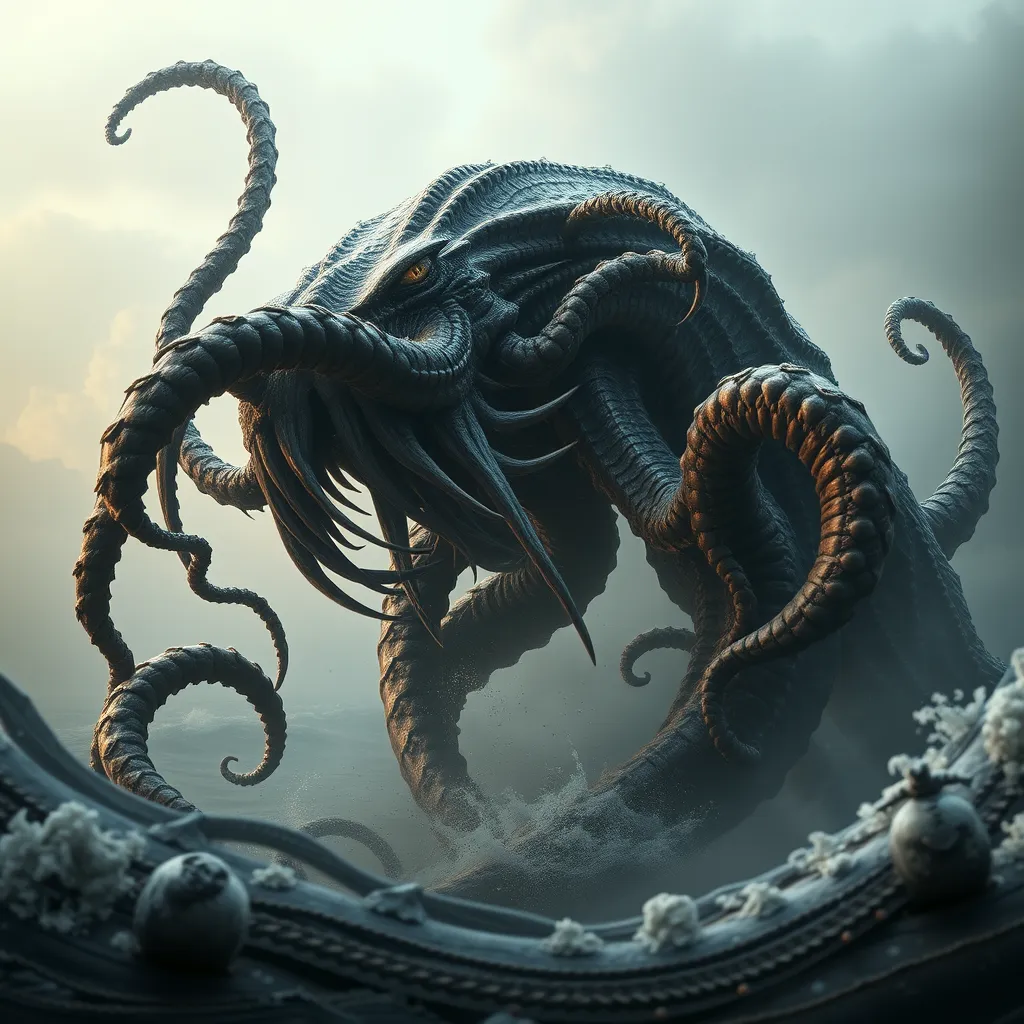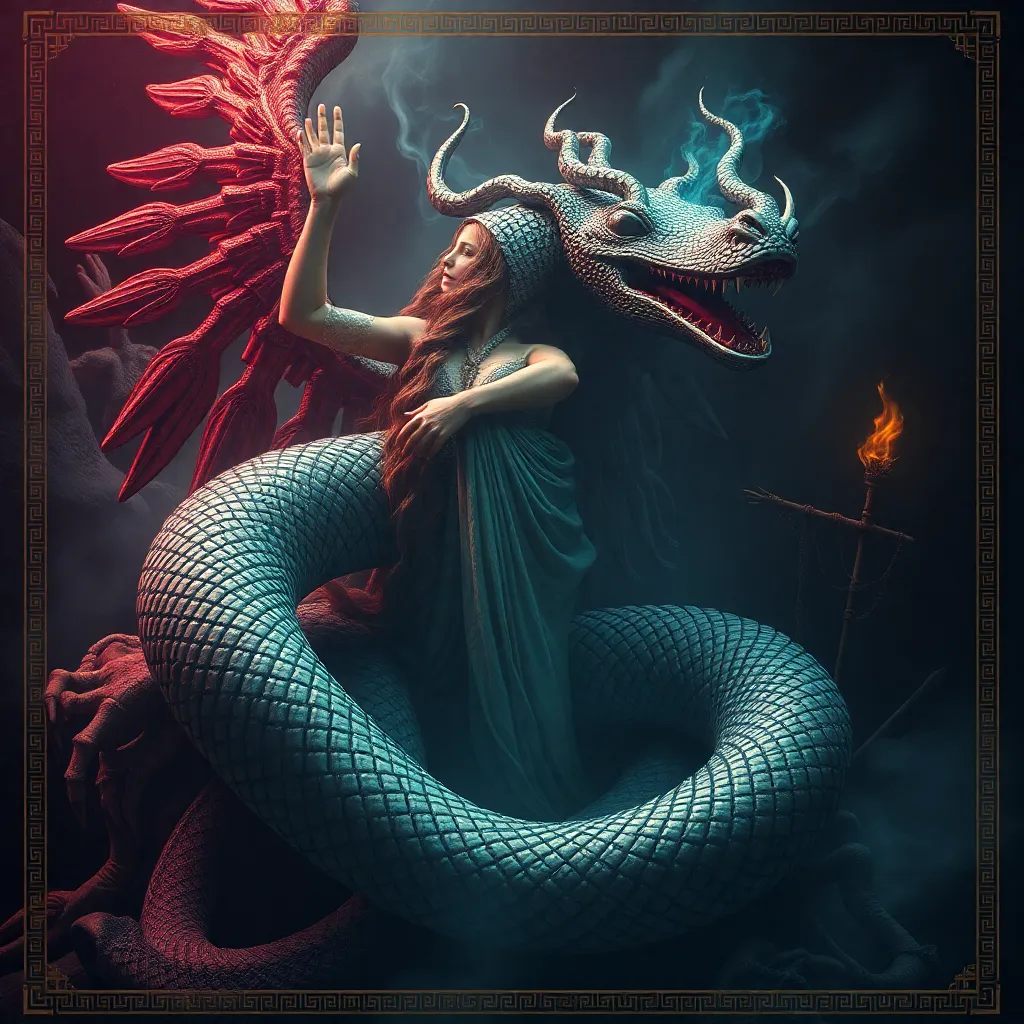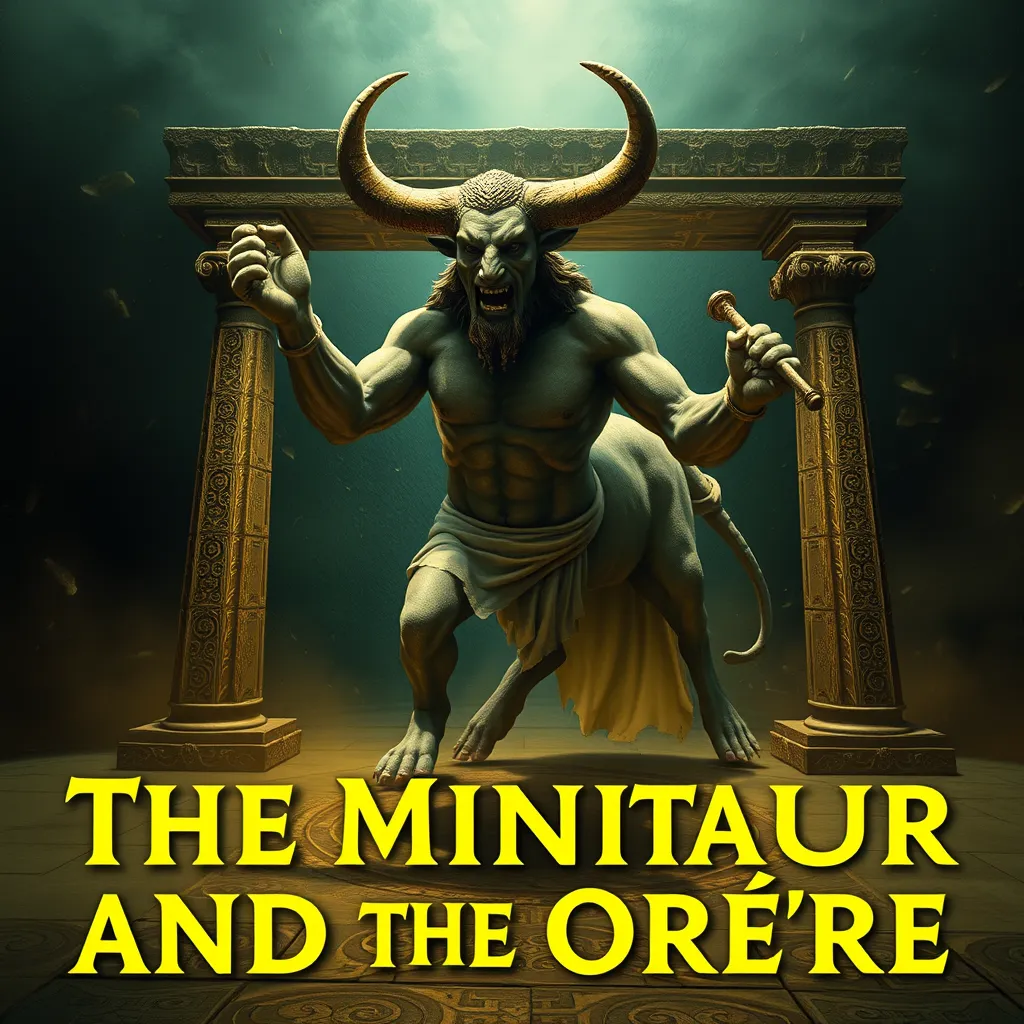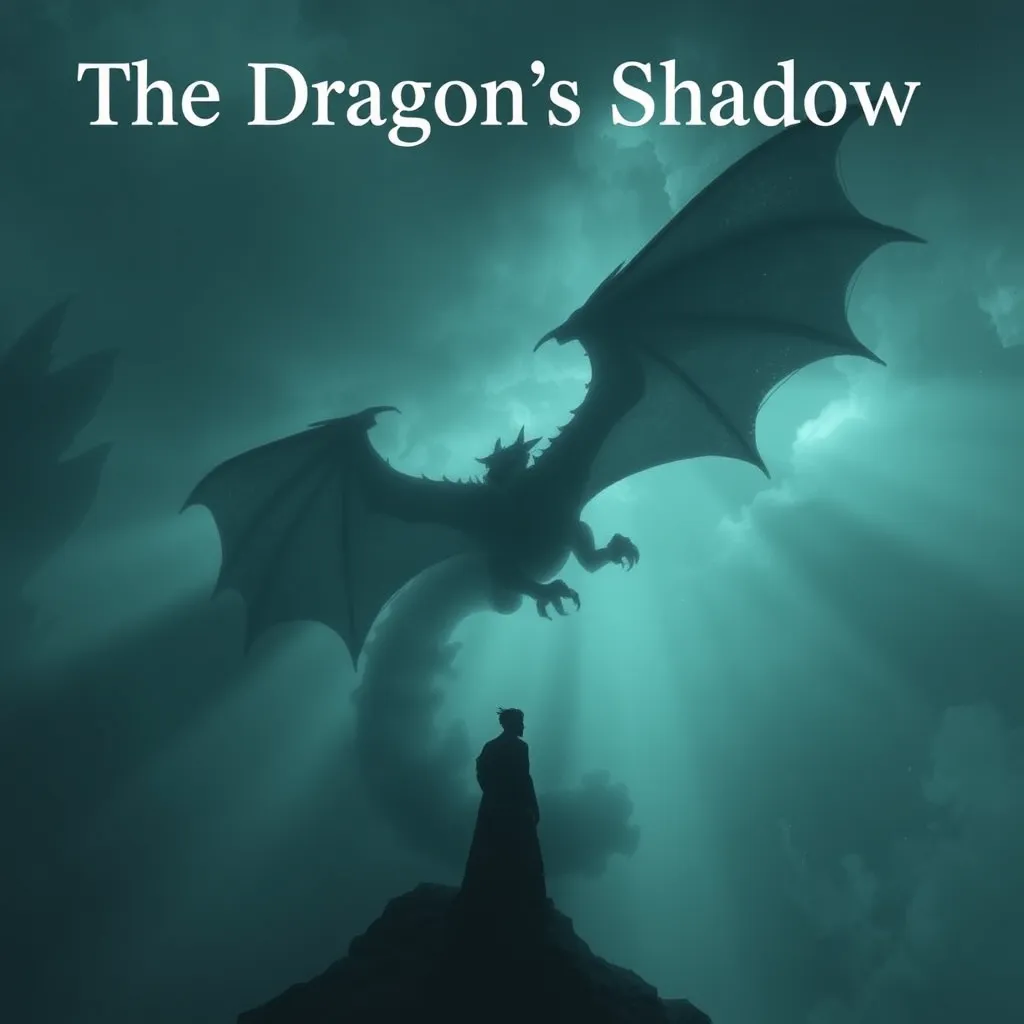The Kraken’s Origins: Tracing the Monster’s Roots in Ancient Mythology
I. Introduction
The Kraken, often depicted as a colossal sea creature capable of dragging entire ships into the depths of the ocean, has captivated the imagination of people for centuries. From its early origins in folklore to its prominent place in modern popular culture, the Kraken has become synonymous with the mystery and terror of the high seas.
Exploring the origins of the Kraken in mythology is significant because it sheds light on the fears, beliefs, and cultural contexts of maritime societies throughout history. This article will delve into the historical references, cultural significance, and modern interpretations of the Kraken, providing a comprehensive overview of its evolution from ancient myth to contemporary icon.
II. The Kraken in Folklore and Literature
Historical references to the Kraken can be traced back to the 13th century, with notable mentions in writings by explorers and sailors. Notably, the first recorded mention of the Kraken comes from Francesco Negri in 1700, who described a giant sea creature off the coast of Norway.
In Scandinavian folklore, the Kraken is often portrayed as a massive cephalopod, often resembling an octopus or squid. Sailors would claim that the creature would surface near ships, creating whirlpools that would drag vessels and their crews into the abyss.
- Historical References:
- Francesco Negri’s accounts in 1700
- Descriptions in the writings of Carl Linnaeus
- Scandinavian Folklore:
- Legends of the Kraken in Norwegian and Icelandic tales
- The creature’s association with storms and perilous waters
When compared with other sea monsters in global mythology, such as the Leviathan in Judeo-Christian texts or the Umibozu in Japanese lore, the Kraken shares similarities in representing humanity’s fear of the unknown depths of the ocean.
III. Ancient Maritime Cultures and Their Sea Myths
The role of the sea has always been paramount in ancient societies, particularly for those whose livelihoods depended on fishing and trade. As such, the ocean was often personified and imbued with divine qualities, giving rise to various myths and legends.
Mythical creatures like the Kraken served as symbols of the dangers that lurked beneath the surface, often reflecting the fears and uncertainties faced by maritime cultures. The Kraken, along with other sea monsters, served to explain natural phenomena, such as storms or sudden shipwrecks.
- Symbolic Meanings:
- Fear of the unknown
- Environmental dangers
- Representation of chaos and destruction
In this broader context of maritime mythology, the Kraken fits as a significant figure that encapsulates the awe and terror that the sea inspired in ancient civilizations.
IV. The Evolution of the Kraken’s Image
Over the centuries, the image of the Kraken has transformed dramatically. From a feared monster of the deep to a subject of fascination in modern media, the Kraken’s portrayal has evolved significantly.
Influential literature, art, and film have played a crucial role in shaping the modern interpretation of the Kraken. For instance, Alfred Lord Tennyson’s poem “The Kraken” (1830) romanticized the creature, while films like “Pirates of the Caribbean” brought the Kraken into mainstream pop culture.
- Modern Interpretations:
- From terror to fascination in literature and art
- The Kraken as a character in films and video games
As a result, the Kraken has become a symbol of the unknown and a subject of intrigue, shaping public perception of sea monsters in contemporary culture.
V. Scientific Explanations and Potential Real-Life Inspirations
While the Kraken is a mythical creature, various theories suggest that it may have been inspired by real-life marine animals, particularly the giant squid. Reports of massive squids and their ability to attack ships could have contributed to the legend of the Kraken.
Additionally, many maritime myths, including those about the Kraken, often stem from sailors’ encounters with unfamiliar creatures or phenomena, which were frequently embellished through storytelling.
- Theories Regarding Real-Life Counterparts:
- Giant squids and their elusive nature
- Misidentifications of marine wildlife
This intersection of folklore and marine biology illustrates how myths can arise from genuine experiences, even as they evolve into more fantastical tales.
VI. Cultural Significance and Symbolism of the Kraken
The Kraken has transcended its role as a mere sea monster to become a significant cultural symbol. It embodies humanity’s fear of the unknown, especially in relation to the vast and mysterious ocean.
In modern literature and media, the Kraken has been reimagined as both a villain and a tragic figure, reflecting the complexities of human emotions and the duality of nature.
- Modern Representation:
- Metaphor for fear and the unknown
- Influence on nautical traditions and beliefs
As a cultural icon, the Kraken continues to inspire stories, artwork, and discussions surrounding the ocean’s mysteries and the human experience.
VII. The Kraken in Contemporary Popular Culture
In recent years, the Kraken has experienced a resurgence in popular culture, appearing in films, video games, and literature. This revival has introduced the creature to new generations and fostered renewed interest in its mythological roots.
Modern depictions of the Kraken often differ from historical accounts, portraying it as a more complex character that can evoke sympathy or awe rather than merely fear.
- Modern Depictions:
- Films such as “Clash of the Titans” and “Pirates of the Caribbean”
- Video games like “Sea of Thieves”
Through these various mediums, the Kraken has become a symbol of adventure and exploration, representing the enduring allure of the sea and its mysteries.
VIII. Conclusion
The journey of the Kraken from ancient myth to modern icon reflects the evolution of human understanding of the sea and its mysteries. As a creature deeply embedded in various cultures, the Kraken serves as a reminder of our fears and fascinations regarding the unknown.
Mythology plays a crucial role in understanding cultural narratives, and the Kraken remains a powerful symbol that continues to inspire and intrigue. Looking ahead, the future of the Kraken in mythology and popular culture is likely to remain vibrant, as new stories and interpretations emerge, keeping the legend alive for generations to come.



